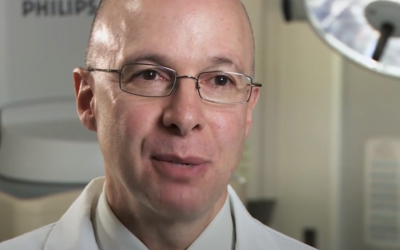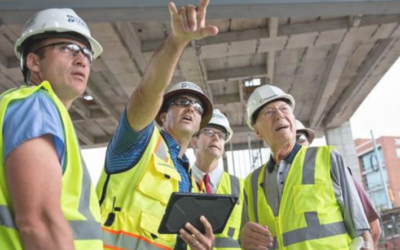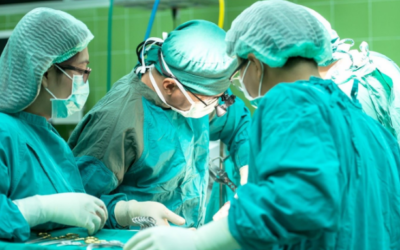Piedmont Hospital Medical Director Meets COVID-19
Dr. Mark Cohen, a vice president & medical director for the hospital, shares the difficulties of running the Piedmont facility during the pandemic.

On Tuesday, April 14, Piedmont Atlanta Hospital moved the first patients into its new 16-story Marcus Tower. The opening of the building, which came over 3 1/2 months ahead of schedule, was intended to alleviate pressure on existing hospital units because of the COVID-19 pandemic. The $450 million building was constructed with a $75 million gift from Billi and Bernie Marcus, co-founder of The Home Depot, through The Marcus Foundation.
We spoke with Dr. Mark Cohen, a vice president and medical director for the hospital, about the difficulties of running the Piedmont facility during the current pandemic.
AJT: Like every other hospital in this country, you’ve had to adapt to the shortage of personal protective equipment, especially face masks. How serious of a problem has that been?
Cohen: It’s been a very serious problem to manage, but one that fortunately we’ve been able to stay in front of. Because the N95 supply of masks is uncertain, we’ve put in protocols for wearing a mask and under what circumstances.

We’re going to an extended-use policy where ideally, we’d be using the masks one time and throwing them out, now we’re using them more than once. We’re preparing a sterilization plan to extend the life of the masks even longer. We will be re-sterilizing within a week.
What the crisis has done is added an element of we have to take care of ourselves and particularly with having to ration the personal protection equipment.
It creates a sense of anxiety among the health care workers that they may be putting themselves in danger while taking care of the patients. And then because the hospital has to manage supplies and resources, we’re asking all of the staff to have an awareness of that as well. Don’t use an N95 mask one time and throw it away. Put it in the paper bag that we gave you. Save it for the next time. We’re really just doing the best we can.
AJT: How difficult has it been to adapt the needs of your regular patients to the needs of the virus patients?
Cohen: It’s horrible. So can you imagine you have colon cancer and you’re scheduled for surgery and then your surgeon calls you and says, we’re going to delay your surgery for about a month. That’s a conversation no medical professional has ever had before, and it’s one that patients have not had and one that the system has never needed to deliver. So that is just an awful situation for anybody to be in.

AJT: How important has the Marcus building been in your plans?
Cohen: It’s been a tremendous asset. The original plan was for us to take full occupancy in May, spend the next three months getting ready and moving the first patient in around the first of August. The city and the state granted us certificates of occupancy early. So two weeks ago we had full occupancy and we were able to open up one half of one floor to give us the intensive care unit capability and we can expand into 2 1/2 other floors if necessary. So it’s enabled us to expand our resources. We were able to obtain enough ventilators to manage the rooms and to expand staff.
AJT: And what about opening more floors in the Marcus Tower?
Cohen: It’s going to be as the need presents itself. So if Georgia, Atlanta in particular, has been successful in flattening the curve, then we may not need to expand it any more than we already have. If we start to see the big surge in cases, then as the hospital fills up, as our ICU fills up, then we can open up more beds.
AJT: What’s your best prediction for the future?
Cohen: The current prediction is that Georgia will peak for hospital resource needs around the first of May. It keeps getting pushed out longer and longer, which I think is a response to us flattening the curve through our social distancing. If the prediction models are at all accurate, then by early June we should be seeing a dramatic reduction in the number of patients who are sick or needing hospitalization.

But this isn’t going to go away. We don’t have any immunity as a population, so we’ll be seeing cases all through the summer and into the fall. There are models that predict another surge of patients as we all start to move back inside, in the fall, in the winter. Hopefully it will not as bad as where we are now.
AJT: What’s it been like to be in the position that you’re in at this time in history?
Cohen: It’s very mixed. I feel totally overwhelmed by the responsibility I have, and I am just very fortunate to share it with an executive team and leadership team. That means I’m not in this alone. No one of us is in it alone. My daughter in Brooklyn sent me a video clip she made of people cheering for hospital workers.
I have been in health care for 40 years now and I have never had to deal with anything that comes close to this. I am so aware that everyone in healthcare is like a fireman rushing into the burning building while everyone else is staying away and they deserve special recognition for that.



comments